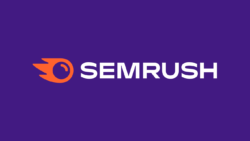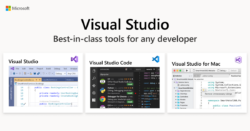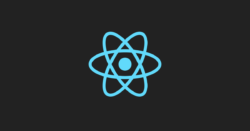Meteor
Meteor is an open-source platform for web, mobile, and desktop used by over half a million developers around the globe. Meteor makes shipping Javascript applications efficient and scalable. Sign up for your free Meteor Cloud account today!
Who is Meteor for?
- Data Scientists
- Full-Stack Developers
- Mobile App Developers
- Software Engineers
- Web Developers
Why you should find out more
- Meteor is the Easiest Way to Build Web and Mobile Apps with over 500,000 Developers Using Meteor
- Meteor is the Fastest Way to Build Real-Time Web and Mobile Apps with over 10,000 Apps Built in Meteor
- Meteor is the Most Popular Open Source Platform for Building Web and Mobile Apps with over 1.5 Million Downloads
What are the benefits of Meteor?
- Flexible
- Real-Time
- Scalable
- Secure
Things to consider
- Costly Hosting
- Limited Support
- Security Risks
- Steep Learning Curve
Meteor is an open-source JavaScript web framework that allows developers to quickly build modern web and mobile applications.
It is designed to make development easier and faster by providing a set of tools and libraries that can be used to create applications with minimal effort.
Who Should Use Meteor?
Meteor is ideal for developers who want to quickly build modern web and mobile applications.
It is also suitable for those who want to create applications with minimal effort and who are comfortable working with JavaScript.
Key Benefits and Features
- Easy to use: Meteor is designed to make development easier and faster by providing a set of tools and libraries that can be used to create applications with minimal effort.
- Real-time updates: Meteor allows developers to create applications that update in real-time, meaning changes are reflected in the application immediately.
- Cross-platform: Meteor can be used to create applications for both web and mobile platforms.
- Scalable: Meteor is designed to be highly scalable, allowing developers to create applications that can handle large amounts of data and traffic.
How Does Meteor Compare to its Competitors?
Meteor is a popular choice for developers who want to quickly build modern web and mobile applications.
It is designed to make development easier and faster by providing a set of tools and libraries that can be used to create applications with minimal effort.
Compared to its competitors, Meteor is more scalable and offers real-time updates, making it a great choice for developers who want to create applications that can handle large amounts of data and traffic.
Data Scientists
Keep up to date about Analytics offers like Meteor
Privacy| Features |
|---|
Help & Support
- What is the Meteor Development Group?
- The Meteor Development Group (MDG) is the company behind Meteor. It is responsible for the development, maintenance, and support of the Meteor platform.
- What is Galaxy?
- Galaxy is a cloud hosting platform for Meteor apps. It provides a secure, reliable, and scalable environment for deploying and managing Meteor apps.
- What is Atmosphere?
- Atmosphere is a package repository for Meteor. It contains thousands of packages that can be used to extend the functionality of Meteor apps.
- What is the Meteor Forum?
- The Meteor Forum is an online community for developers to discuss Meteor-related topics. It is a great place to get help and advice from other Meteor developers.
- What is Meteor?
- Meteor is an open source platform for web, mobile, and desktop that allows developers to quickly build modern apps with JavaScript.
- What platforms does Meteor support?
- Meteor supports web, mobile, and desktop platforms. It can be used to build apps for iOS, Android, Windows, Mac, and Linux.
- What programming languages does Meteor support?
- Meteor supports JavaScript, HTML, and CSS. It also supports other languages such as CoffeeScript, TypeScript, and Dart.
- What databases does Meteor support?
- Meteor supports MongoDB, Redis, and MySQL. It also supports other databases such as PostgreSQL, Oracle, and SQLite.
Comparisons
Analytics for Data Scientists
- Meteor / Google Cloud Platform
 Meteor / Amazon Web Services (AWS)
Meteor / Amazon Web Services (AWS)- Meteor / Microsoft Azure
- Meteor / IBM Cloud
- Meteor / Data Quality Pro
 Meteor / Python
Meteor / Python- Meteor / Java
- Meteor / Swift for TensorFlow
 Meteor / Scala.js
Meteor / Scala.js- Meteor / MicroStrategy
- Meteor / DreamFactory
 Meteor / D3.js
Meteor / D3.js- Meteor / Launchpad
 Meteor / KNIME
Meteor / KNIME Meteor / TensorFlow
Meteor / TensorFlow
Cloud Services for Data Scientists
Data Management for Data Scientists
- Meteor / Commvault Data Protection
- Meteor / Alibaba Cloud
- Meteor / CloudMigrator360
- Meteor / SAS Business Intelligence
 Meteor / Informatica Data Governance
Meteor / Informatica Data Governance Meteor / Mulesoft
Meteor / Mulesoft Meteor / Collibra Data Governance Center
Meteor / Collibra Data Governance Center- Meteor / H2O.ai
 Meteor / DataRobot
Meteor / DataRobot Meteor / RapidMiner
Meteor / RapidMiner- Meteor / SnapLogic
 Meteor / MongoDB
Meteor / MongoDB- Meteor / Cassandra
 Meteor / Neo4j
Meteor / Neo4j
Mobile Development for Data Scientists
Security for Data Scientists
Web Development for Data Scientists
Data Management for Full-Stack Developers
Mobile Development for Full-Stack Developers
Security for Full-Stack Developers
Web Development for Full-Stack Developers
Mobile Development for Mobile App Developers
Web Development for Mobile App Developers
Analytics for Software Engineers
Mobile Development for Software Engineers
Security for Software Engineers
Analytics for Web Developers
- Meteor / SEOquake
 Meteor / Screaming Frog
Meteor / Screaming Frog- Meteor / AccuRanker
- Meteor / Authority Labs
- Meteor / OpenCart
- Meteor / Google Analytics
- Meteor / SEO Site Checkup
- Meteor / Lunar DeepCrawl
- Meteor / SEObility
- Meteor / SEO Analyzer
 Meteor / Sitebulb
Meteor / Sitebulb- Meteor / Beanstalk
- Meteor / Unity
Integrations for Web Developers
Web Development for Web Developers
Other Analytics
- Meteor / Oracle Cloud Infrastructure
 Meteor / INE
Meteor / INE Meteor / Wix.com
Meteor / Wix.com Meteor / Weebly
Meteor / Weebly Meteor / Squarespace
Meteor / Squarespace Meteor / Jimdo
Meteor / Jimdo Meteor / BigCommerce
Meteor / BigCommerce- Meteor / Google Search Console
- Meteor / Moz Pro
 Meteor / Ahrefs
Meteor / Ahrefs Meteor / Semrush
Meteor / Semrush Meteor / KWFinder
Meteor / KWFinder- Meteor / SEO PowerSuite
- Meteor / Recorded Future
- Meteor / ThreatMetrix
 Meteor / Cloudflare
Meteor / Cloudflare Meteor / Serpstat
Meteor / Serpstat Meteor / Advanced Web Ranking
Meteor / Advanced Web Ranking- Meteor / Magento
 Meteor / Volusion
Meteor / Volusion- Meteor / 3dcart
- Meteor / PrestaShop
- Meteor / Marketo Engage
- Meteor / Crazy Egg
- Meteor / SAP Business Solutions
 Meteor / SEOptimer
Meteor / SEOptimer- Meteor / Microsoft Office 365
 Meteor / Dropbox
Meteor / Dropbox- Meteor / SEO Audit Tool
- Meteor / SEO Audit Pro
 Meteor / Slack
Meteor / Slack Meteor / SE Ranking
Meteor / SE Ranking Meteor / Moogsoft
Meteor / Moogsoft- Meteor / GoToConnect
- Meteor / Conductor
Other Data Management
- Meteor / Oracle Cloud Infrastructure
 Meteor / INE
Meteor / INE Meteor / Symantec
Meteor / Symantec- Meteor / Recorded Future
- Meteor / ThreatMetrix
- Meteor / Veeam Data Protection
- Meteor / Veritas Data Protection
- Meteor / SAP Business Solutions
- Meteor / CloudEndure Migration
 Meteor / JetBrains
Meteor / JetBrains- Meteor / VMware
 Meteor / Talend Data Quality
Meteor / Talend Data Quality Meteor / Comodo
Meteor / Comodo- Meteor / Nessus
- Meteor / Microsoft Office 365
 Meteor / Dropbox
Meteor / Dropbox- Meteor / Mozilla Hubs
 Meteor / Dell Boomi
Meteor / Dell Boomi Meteor / Jitterbit
Meteor / Jitterbit- Meteor / Integromat
 Meteor / Juniper Networks
Meteor / Juniper Networks Meteor / Udacity
Meteor / Udacity- Meteor / n8n
- Meteor / Codecademy
Other Integrations
 Meteor / Discourse
Meteor / Discourse Meteor / Slack
Meteor / Slack- Meteor / Agile CRM
- Meteor / Cisco Webex
- Meteor / Pusher
- Meteor / Tawk.to
 Meteor / Moogsoft
Meteor / Moogsoft Meteor / Icinga
Meteor / Icinga- Meteor / GoToConnect
Other Mobile Development
Other Security
- Meteor / Linksys
- Meteor / VMware
 Meteor / Garageio
Meteor / Garageio- Meteor / Ring Video Doorbell 4
- Meteor / Mozilla Hubs
 Meteor / Slack
Meteor / Slack Meteor / Zoho Assist
Meteor / Zoho Assist Meteor / Juniper Networks
Meteor / Juniper Networks Meteor / Icinga
Meteor / Icinga- Meteor / WP Engine
- Meteor / GoToConnect
 Meteor / Splunk
Meteor / Splunk- Meteor / OneLogin




